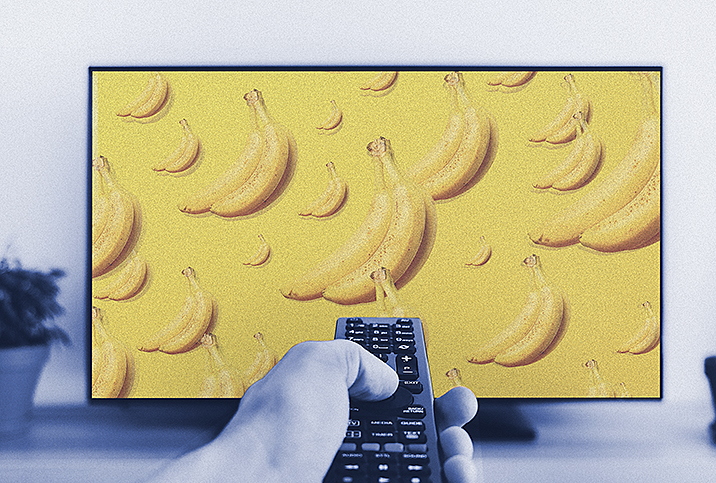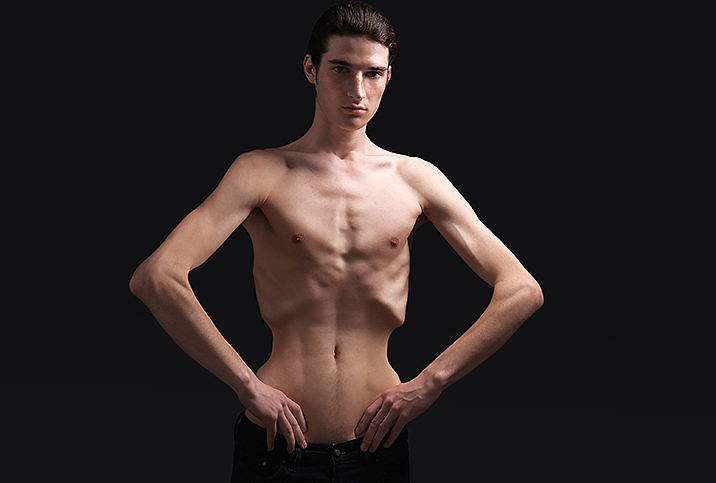The Rise of Muscle Dysmorphia in Men

No matter your preferred hero, they all likely have one thing in common: their physique. With comic book-inspired media dominating the landscape, we're inundated with chiseled men whose bodies can do impossible things, which is all well and good for entertainment and escapism. Unfortunately, consuming these images can skew our perceptions of how the average man should look, leading to discontentment with our bodies.
Here's what you should know about muscle dysmorphia in men and how you can overcome it.
What is muscle dysmorphia?
Body dysmorphia is a mental health disorder in which you perceive something about your body as a flaw and fixate on it, when others may never even notice it. Body dysmorphia can lead to feelings of embarrassment and even cause you to avoid social situations. Some people with body dysmorphia develop eating disorders in the quest to attain their desired body type.
Muscle dysmorphia happens when someone obsesses over having a muscular physique. If you have muscle dysmorphia, you may overly critique yourself in the mirror, avoid mirrors completely, have an obsession with bulking up, have an intense fear of losing muscle mass, forgo your social life in favor of the gym, use supplements excessively or have anxiety if you miss a workout.
The problem with the "Marvel body"
Though we should do everything we can to be healthy, the superhero body type isn't typically attainable. Actors have teams of physical trainers and nutritionists helping them look the way they do on camera—plus a team that carries out extensive editing, touch-ups and greenscreen manipulations to the final footage. They endure months of strict dieting and exercise routines that the average person simply cannot do. Regimens that result in the "Marvel body" require a high caloric intake that could result in a person eating upwards of 30 meals a day. The financial cost of all that food hardly seems worth the result.
Hollywood actors can afford this body because they're paid to attain it. It's their job to spend long hours in the gym and add enough mass to resemble a superhero. The average person doesn't have the same resources.
Overcoming body dysmorphia
The root of body dysmorphia is insecurity about your physical appearance, so confronting your insecurities will help you overcome the disorder. Support groups are a good start, where you can learn from other people experiencing the same challenges. Cognitive-behavioral therapy (CBT) with a therapist will allow you to talk through why you feel the way you do about your body and replace your negative thinking patterns with positive ones. Antidepressants can also help ease the symptoms of body dysmorphia, even if you're not depressed. And spending more time with your friends and family can raise your self-esteem and help you accept how you look.
You can overcome muscle dysmorphia by setting realistic goals. Reducing your exposure to triggering media can keep you from comparing yourself to celebrities to an unhealthy extent.
Being physically fit can be an indication of good health, but if you think you've reached an obsessive level of concern about your fitness and image, it may be time to step back and realize you need help. Normal people don't have to go to extremes to look and feel good. Remember that movies are presenting a fictional world for entertainment—they are not reality.
Set realistic goals at the gym and focus on enjoying yourself, and leave the unrealistic body standards to those fictitious superheroes in the movies.


















